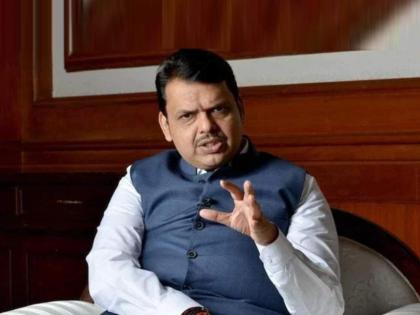Non-disclosure of info by Devendra Fadnavis was unintentional: Court in acquittal order
By Lokmat English Desk | Updated: September 12, 2023 09:18 IST2023-09-12T09:18:42+5:302023-09-12T09:18:48+5:30
The court in Maharashtra has acquitted Deputy Chief Minister Devendra Fadnavis, stating that he did not intentionally withhold information ...

Non-disclosure of info by Devendra Fadnavis was unintentional: Court in acquittal order
The court in Maharashtra has acquitted Deputy Chief Minister Devendra Fadnavis, stating that he did not intentionally withhold information about two pending criminal cases against him in the affidavit submitted for the 2014 assembly elections, and he did not do so with the intention of winning the polls.
Civil Judge Sangram Jadhav on September 8 acquitted Fadnavis in a complaint lodged against him for alleged non-disclosure of two criminal cases pending against him in the poll affidavit. The detailed order of the court became available on Monday. The court stated that Fadnavis had not concealed information about the two pending cases intentionally.
The court emphasized that section 125A of the Representation of Peoples Act (RPA) does not impose strict liability on the accused. It is essential to establish the mens rea, which is the intention, to find someone guilty. Furthermore, the court pointed out that if a candidate's support team fails to gather certain information, the candidate should not be held accountable for that mistake. Additionally, the court observed that in the current case, Fadnavis sought assistance from a legal advocate to compile information about all the pending criminal cases against him.
On the contrary, it is an unjust and unreasonable expectation that the accused (Fadnavis) or layman leaving all his work and business wander door to door of various courtrooms to gather information about criminal cases pending against him, the court said. It added that Fadnavis had mentioned about 22 pending cases, which are of a more serious nature, against him in the election affidavit and that no fruitful purpose would be served to Fadnavis by hiding the two criminal cases which were inconsequential of nature.
Fadnavis submitted to the court in April this year that the non-disclosure was an inadvertent mistake on the part of his previous lawyer. The senior BJP leader had stated there was no intention to deliberately conceal information about the two insignificant complaint cases and their non-inclusion in the affidavit of Form 26 was sheer inadvertence and without any intention.
In 2014, when Uke’s complaint was heard for the first time, the civil court had ruled against Fadnavis but the Nagpur bench of the Bombay High Court gave him clean chit. Uke challenged the HC order before the Supreme Court which held that a case was made for the prosecution of Fadnavis.
Open in app